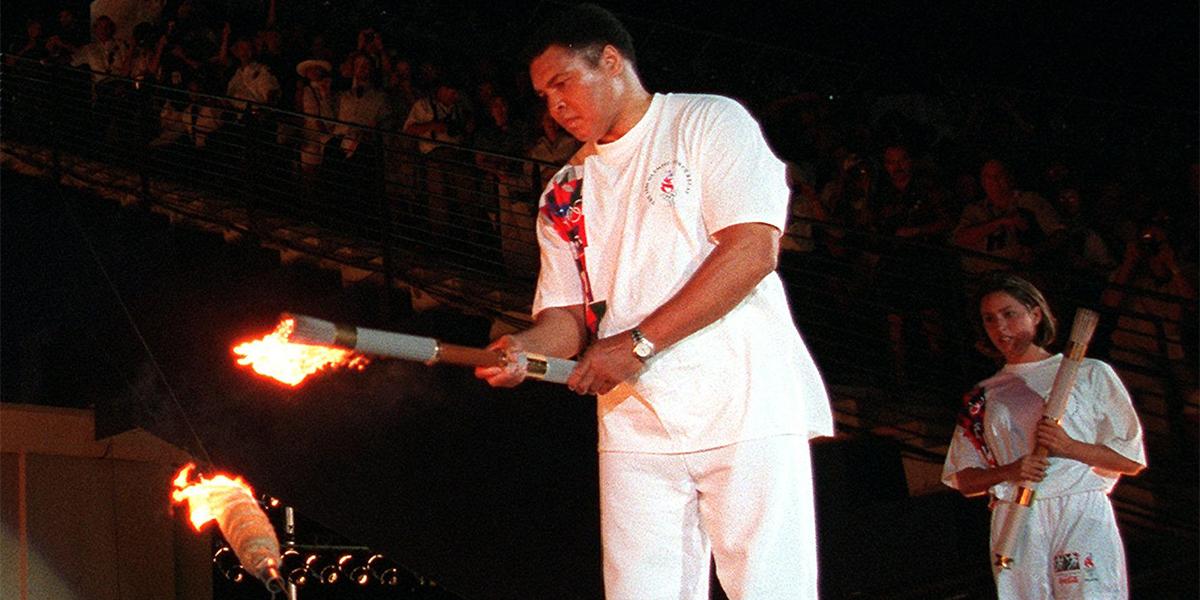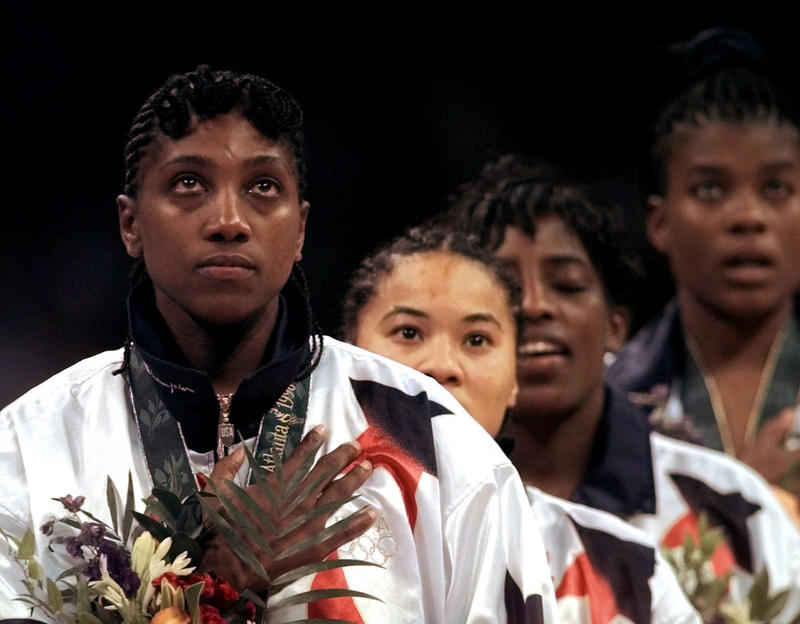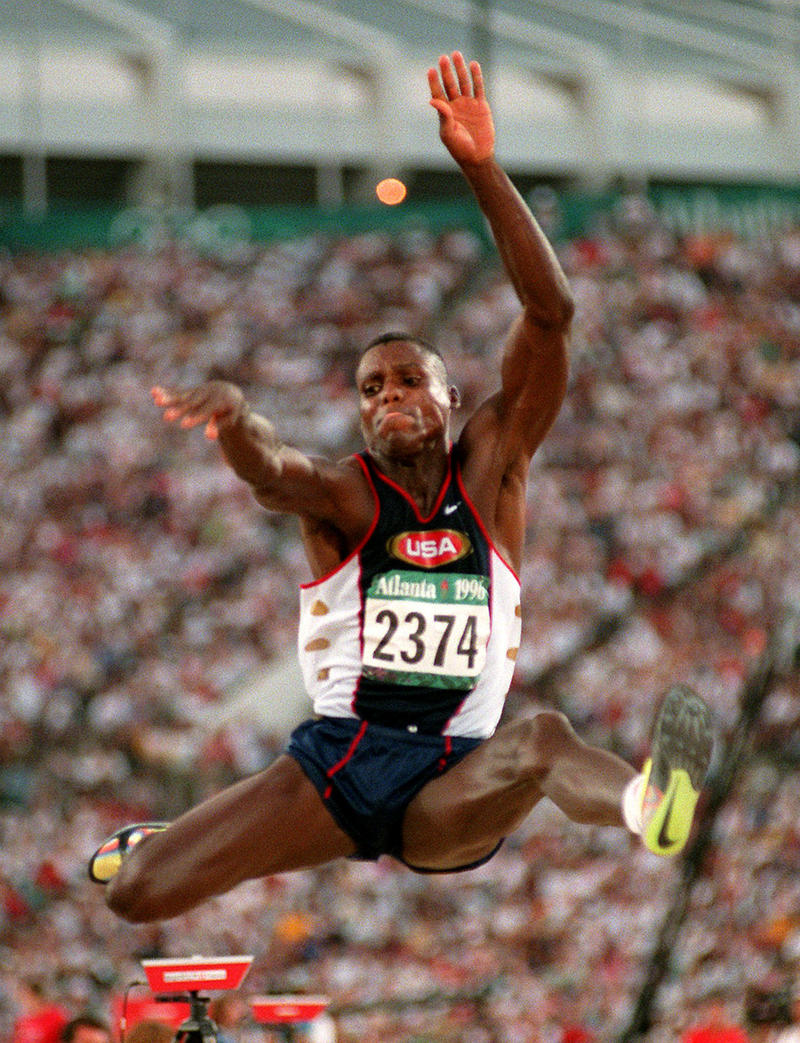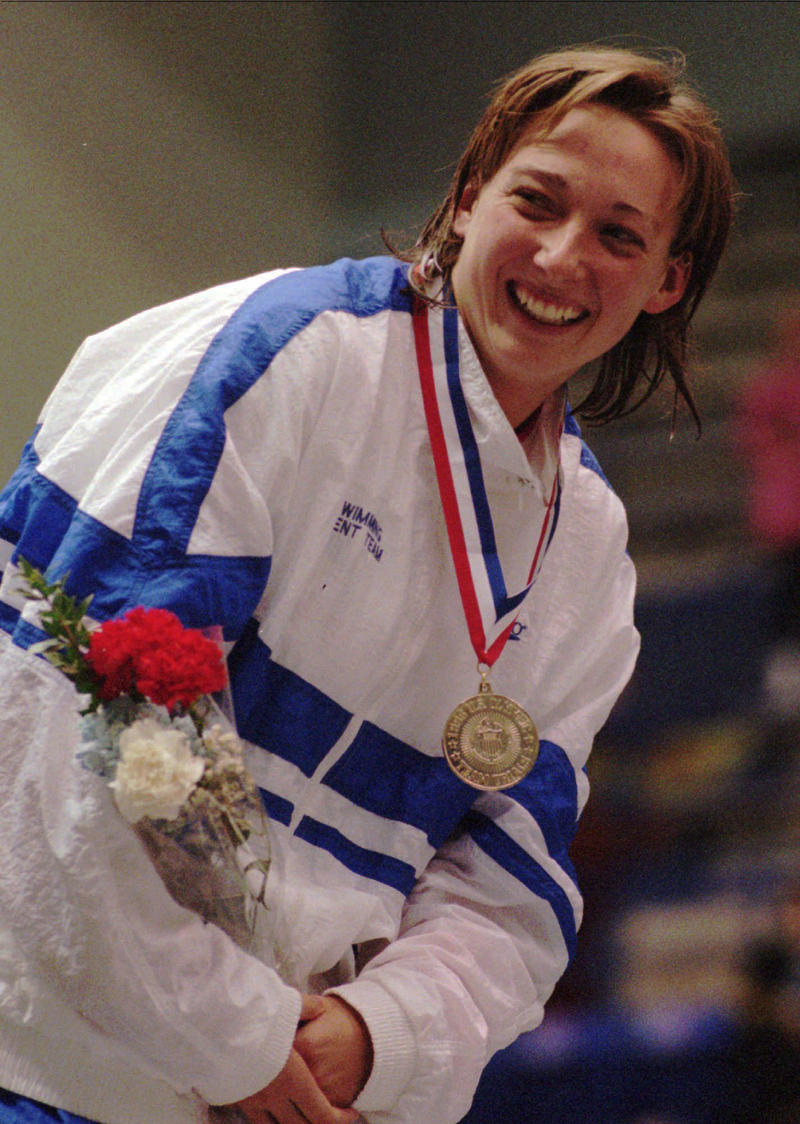Olympic Athletes, Officials Recall The 1996 Atlanta Games


This story is part of “Atlanta Remembers: The 1996 Olympics,” WABE’s series on the impact of the 1996 Summer Olympics on Atlanta, 20 years later. For more stories, click here.
Twenty years ago, athletes from all over the world came to Atlanta to compete in the 1996 Summer Olympic Games.
On Saturday, some of those athletes and Atlanta officials remembered what it was like to be in the midst of the games that put Atlanta on the map as a globally recognized city.
Ambassador Andrew Young recalled his time with Muhammad Ali before the games, but he said another moment was his favorite memory of the Olympics.
It was a brilliant move on Billy’s part. He thought of that all by himself. It was not my suggestion. And what I remember was when we had Muhammad come to town, we wanted to keep it secret, but he didn’t want to stay quiet. He wanted to go get a haircut, he went to the fish restaurant. He was all over town and I was with him. But nobody knew why he was here. He was just Muhammad Ali, being Muhammad Ali. So I was glad when it came time for him to actually mount the stage for the lighting of the torch, but that was not my memory of that day. My memory for that evening was that when the athletes marched in to the stadium, Israel, Iran and Iraq marched in together. And that’s what the Olympics was about for me. The Olympics was about the possibility that the world can live together peacefully and prosperously.
The ‘Father’ Of Atlanta’s 1996 Olympic Games Looks Back
Olympic women’s basketball star and five-time Olympic medal winner Teresa Edwards also looked back on seeing Muhammad Ali light the 1996 Olympic torch.
I was the actual athlete who recited the athlete’s oath at the opening ceremony right here in Atlanta on July 19, my birthday. Everything was perfectly aligned for me. When Muhammad Ali came around the corner with the torch, or came onto the track, let me tell you something, everything in me, I lost control. Because I was down at the ground waiting my turn to go up, you know I didn’t know, But when I saw that, I screamed at the top of my lungs, I’m jumping up and down. I’m noticing that I’m around all the other countries and the excitement. I’ll never forget how he lit that entire stadium up. Anyone who was in that stadium will never forget what they felt, how he lit that up.

World-record-setting track and field runner Carl Lewis won the gold for the men’s long jump in 1996, making the win his fourth consecutive win in that category, but that historic moment may not have happened had the games not been in Atlanta, a place the 10-time Olympic medal winner thinks of as a second home.
First of all I had a place here, so I always felt kind of a part of Atlanta and I had so many relatives. I was born in Birmingham and my mother is from Gasden, so I had a lot of people here. That was my memory. It was like family, like home for me. That’s what the games were like and honestly if this games had been in another country I would not have gone. I would have stopped. There’s no way I would have done it, and it ended up being one that’s close to my heart.
The 1996 Summer Paralympics made its first fully corporate-sponsored debut in Atlanta. The Shepherd Center, a hospital that specializes in brain and spinal injuries, played a major role in bringing the Paralympics to Atlanta, COO James Shepherd told WABE at the reunion celebration.
“It meant a lot to have Atlanta be an international city and host the games together,” Shepherd said. “We’re very proud of that. We’re as proud of that as we are of anything we’ve done in our history.”
The 1996 games helped elevate the Paralympic Games to household name status, Paralympic track and field gold medalist Al Mead said.
Atlantans Remember The 1996 Summer Olympic Games
Recalling his watching the games in 1996, Shepherd retold one moment that stood out in his mind:
Probably one of the standouts was watching Tony Volpentest, a quadruple congenital amputee, turn a 100-meter time with about 11-something seconds. It was about a second and a half off Carl Lewis’ time. It was special. It brought visibility to elite athletes.

Aside from swimmer Amy Van Dyken’s four gold medal wins, which made her the most-awarded athlete in the 1996 Olympics, her fondest memories were that of friendship.
So we had a teammate, her name was Amanda Beard. She was 14 years old, just a little munchkin. And she came in when we were done swimming and she said, ‘Amy I want you to come with me because I want to get a tattoo.’ I’m like ‘OK I’ll come with you.” But she goes, ‘But you have to pretend to be my mom.’ I was like ‘Uh, that’s not going to work, Amanda.’ Just things like that. I remember that there was a picture that USA Today had and it was of me and Franziska Van Almsick from Germany and no one else was around. It was just her and I hugging. That was what the Olympics were all about always. That was another good memory.
Van Dyken also said she holds a special place in her heart for Atlanta because “… my life changed forever in this place over the course of five days, over the course of five swims. I walked in here, no one knew who I was and I left as the most decorated athlete of these games, like, it is cool …”
Olympic swimmer Janet Evans, who was given the distinction of carrying to Olympic torch to Muhammad Ali during the 1996 games, expressed her sentiments for Atlanta and the 20-year reunion.
For me it’s wonderful to see my friends and see the people that really brought the games to Atlanta and changed the city for the better and made it, what I believe, partly what it is today. … I think it put Atlanta on the map. I think it was a rejuvenation for the South. I think when you have someone like Muhammad Ali lighting the Olympic caldron, and it just proves what an amazing city this is, that the South can bring so much to the United States and the global environment as a whole.
We want to know about your favorite Olympic moments. Tell us about them in the comment section below.
9(MDAxODM0MDY4MDEyMTY4NDA3MzI3YjkzMw004))








